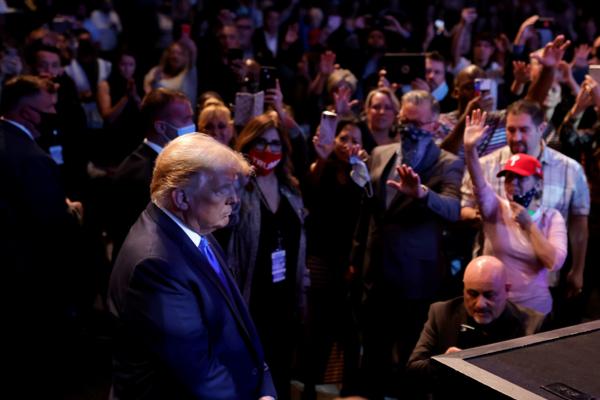Nov 5, 2020
Preliminary exit polling indicates that religious voters maintained many of the political allegiances they have kept for the past several decades — with one possible exception: white Catholics. About two-thirds, or 68 percent, of voters who identify as Christian cast their ballots for President Donald Trump while 31 percent voted for Joe Biden, according to the latest numbers from Edison Research, which conducts a national exit poll for the news media.
Read the Full Article

Already a subscriber? Login
